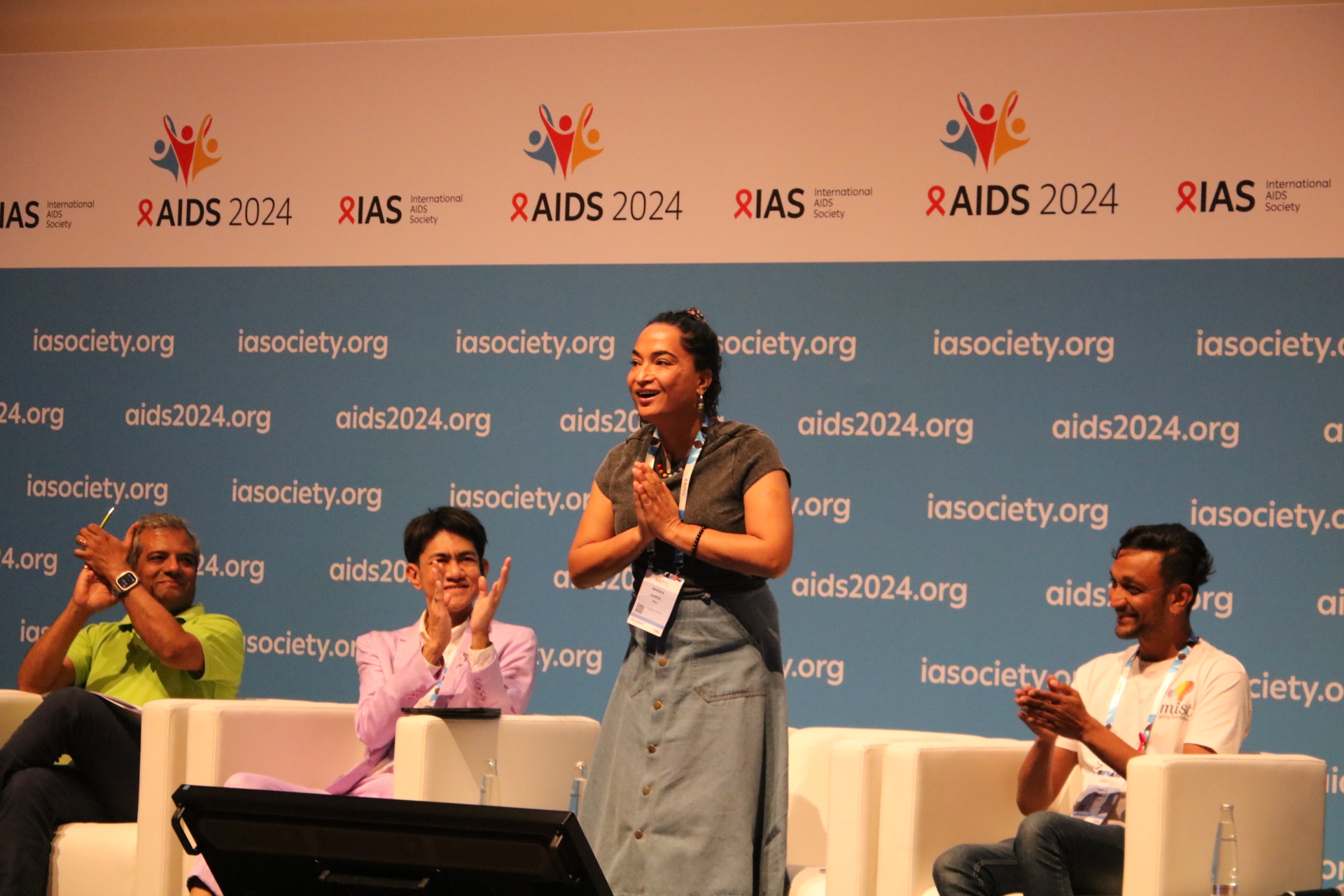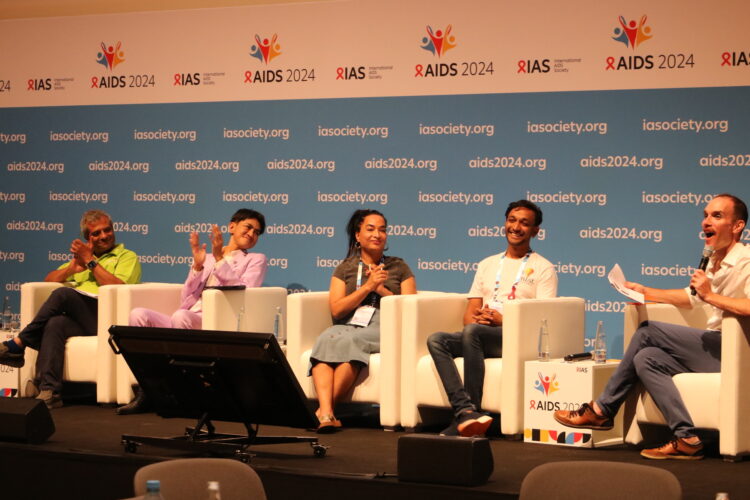25 July 2024 – Munich, Germany – Four key population-led social enterprises are thriving in empowering their communities! The satellite session “The power of profit: how social enterprises promote sustainability and independence of key population-led HIV organizations” at the AIDS 2024 Conference highlighted some of their successes and challenges.
The discussion, facilitated by Brian Richardson of STARTOut, USA, explored how diverse ventures like restaurants, salons, health clinics, and online retail shops are generating revenue and fostering economic independence and inclusivity within the Queer and HIV-positive communities. Exemplary of that, Blue Diamond Society, Mist Foundation, MPLUS Foundation, and the Network of Maharashtra People with HIV each initiated a social enterprise that is paving the way for key population communities’ economic sustainability.
Manisha Dhakal, Executive Director of Blue Diamond Society, shared what it may look like to be a trans woman entrepreneur in Nepal. She was recently awarded the Elizabeth Tailor Human Rights Award, recognizing her effort in achieving major breakthroughs and her exceptional courage for human rights in the HIV field. She discussed the limitations of donor funding, which often restricts spending to specific projects.

The session addressed the broader challenges faced by LGBTQ+ entrepreneurs, who often encounter barriers in accessing traditional funding avenues. “Despite creating more jobs and demonstrating resilience and adaptability,” queer entrepreneurs are “less likely to receive venture capital funding,” stated Brian. Although this disparity underscores the need for alternative funding mechanisms and support systems tailored to the unique needs of these communities, some organizations are succeeding. The Queer Bazaar, an initiative of Mist Foundation in India and the TAAL+ Community Pharmacy were featured as social enterprises’ role models as they can provide crucial services while also generating income.
Pongpeera Patpeerapong from the MPLUS Foundation in Thailand detailed how their certification in HIV testing, supported by USAID, has helped them reduce costs and become more sustainable. Similarly, Manojkumar Pardeshi discussed efforts to make public health services more affordable and accessible.
Manisha Dhakal encouraged participants to pay attention to funding calls for social enterprises and shared this was the case in Nepal. “There was a call for social enterprises… we applied for that, and we got funding to renovate our building.” and that everything started from that point, she claimed.
In concluding the session, speakers emphasized the importance of community unity: “Being a community itself is a power…” stated Shyam Konnur from Mist Foundation, India, claiming that although we must take a strategic use of technology to overcome funding and operational challenges, “humans will always be needed and the ones behind any technology.”
Speakers called for a collective effort to identify successful models and innovative approaches that can be scaled and replicated. The focus remained on leveraging social enterprises not just as a means of financial stability but as a powerful tool for fostering inclusivity, equality, and long-term community development.
The discussion ended with a call to action for Key population-led organizations to embrace entrepreneurship as a viable and necessary path to sustainability.





